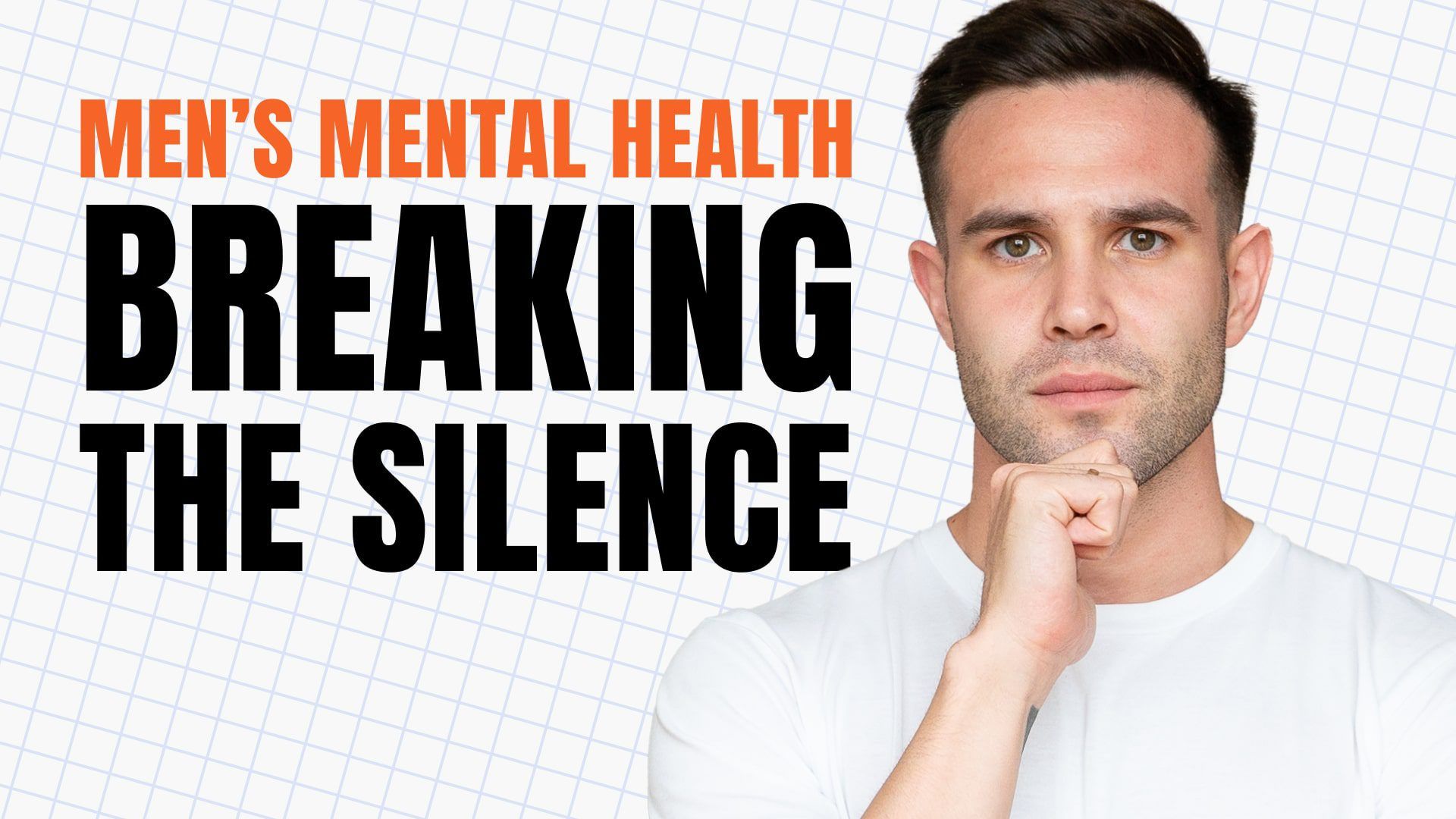
Calculate Your Daily Calorie Intake: Calorie Calculator + Guide
Table of contents
In this article, you will learn…
Understanding your daily calorie needs is crucial whether you aim to lose weight, maintain your current weight, or even gain weight. In this article, you will learn how to accurately calculate your daily caloric needs using a calorie calculator. You’ll also discover how various factors like age, gender, weight, height, and activity level impact your calorie requirements. We’ll guide you through interpreting the results and applying them to your daily routine to help you achieve your health and fitness goals.
Key Takeaways:
- Personalized Calorie Estimate: The calorie calculator provides a customized estimate based on your unique characteristics, offering a precise guideline for your daily caloric intake.
- Weight Management: The results help you understand how to create a calorie deficit or surplus, depending on whether your goal is weight loss, maintenance, or gain.
- Activity Level Insight: Learn how different activity levels influence your caloric needs and how to adjust your intake accordingly.
- Scientific Basis: The calculator uses evidence-based formulas like the Harris-Benedict equation to ensure accuracy and reliability.
What Are Calories?
Calories are units of energy that your body needs to function. Every action you perform, from breathing to running, burns calories. The food you eat provides these calories, and your body uses them as fuel to carry out various bodily functions, including digestion, movement, and maintaining your body temperature. Understanding calories is essential because managing your calorie intake plays a crucial role in achieving and maintaining a healthy weight.
When you consume more calories than your body needs, the excess is stored as fat, leading to weight gain. Conversely, consuming fewer calories than your body requires results in weight loss as your body taps into stored fat for energy. This is why monitoring your caloric intake is a fundamental aspect of weight management.
How the Calorie Calculator Works
The calorie calculator is a tool that estimates your daily caloric needs based on several key factors: age, gender, height, weight, and activity level. Here’s a breakdown of how it works:
- Age and Gender: Your age and gender influence your Basal Metabolic Rate (BMR), which is the number of calories your body needs at rest to maintain basic physiological functions like breathing and circulation. Generally, men have a higher BMR than women due to a higher muscle mass percentage, which requires more energy to maintain.
- Height and Weight: These factors contribute to your overall body composition. Taller and heavier individuals generally require more calories because they have a larger body mass that needs energy for maintenance.
- Activity Level: The calculator uses your activity level to determine your Total Daily Energy Expenditure (TDEE), which is the total number of calories you burn in a day, considering both your BMR and your physical activities. Activity levels range from sedentary to extra active, and they significantly impact your daily caloric needs.
The calculator uses the Harris-Benedict equation to estimate your BMR and then multiplies it by your activity factor to give you an accurate estimate of your TDEE. This estimate is crucial for setting your calorie goals, whether you aim to maintain your current weight, lose weight, or gain weight.
Understanding the Results
Once you input your details into the calorie calculator, it provides several key results that guide your dietary decisions. Here’s what each result means:
- Maintenance Calories: This is the number of calories you need to consume daily to maintain your current weight. It accounts for your BMR and your physical activity level. If you consistently eat this number of calories, your weight should remain stable.
- Calories for Weight Loss: The calculator provides calorie targets for different rates of weight loss. Typically, it shows mild weight loss (around 0.5 pounds per week), moderate weight loss (1 pound per week), and extreme weight loss (up to 2 pounds per week). These targets are achieved by creating a calorie deficit, where you consume fewer calories than your body needs for maintenance.
- Calories for Weight Gain: If gaining weight is your goal, the calculator also provides calorie targets for different rates of weight gain. This involves consuming more calories than your maintenance level, ensuring that the excess calories are stored as muscle or fat, depending on your activity and diet.
Understanding these results helps you make informed decisions about your diet and adjust your caloric intake according to your goals.
Benefits of Using a Calorie Calculator
Using a calorie calculator offers numerous benefits, particularly for those focused on achieving specific health and fitness goals:
- Personalized Guidance: The calculator provides a tailored estimate based on your unique physical characteristics and activity level. This personalization makes it far more accurate than generic dietary guidelines.
- Goal-Oriented Planning: Whether your goal is weight loss, maintenance, or gain, the calorie calculator gives you a clear target to aim for each day. This targeted approach simplifies meal planning and helps you stay on track.
- Improved Awareness: Regularly using the calculator can increase your awareness of how different foods and activities impact your calorie balance. This knowledge empowers you to make better dietary choices and adjust your lifestyle as needed.
- Motivation and Accountability: Seeing your daily calorie needs in numbers can be motivating. It gives you a concrete goal to work towards, which can help you stay accountable to your health and fitness plans.
These benefits make the calorie calculator an essential tool for anyone serious about managing their weight and improving their overall health.
How to Use the Results for Weight Management
Once you have your results from the calorie calculator, the next step is to use them effectively to manage your weight. Here’s how you can apply the results to your daily life:
- Creating a Calorie Deficit for Weight Loss: If your goal is to lose weight, you’ll need to consume fewer calories than your maintenance level. For example, if your maintenance calorie requirement is 2,500 calories per day, you might aim to consume 2,000 calories daily to lose approximately 1 pound per week. Combining this with regular exercise can enhance your results by increasing your daily calorie burn.
- Creating a Calorie Surplus for Weight Gain: If you want to gain weight, particularly muscle, you’ll need to consume more calories than your body burns. Let’s say your maintenance level is 2,500 calories; you could aim to consume 3,000 calories daily to gain weight gradually. Pairing this with strength training can help ensure that the weight you gain is mostly muscle.
- Maintaining Your Current Weight: To maintain your weight, simply aim to consume the number of calories suggested for maintenance. This allows you to enjoy your current lifestyle while keeping your weight stable.
- Adjusting as You Progress: It’s important to regularly reassess your caloric needs, especially if you notice changes in your weight, activity level, or overall health. As you lose weight, your BMR decreases, meaning you’ll need fewer calories. Similarly, as you gain muscle or become more active, your caloric needs might increase.
Incorporating these strategies into your daily routine can make it easier to achieve and maintain your desired weight.
Common Mistakes and Misconceptions
Even with the best tools, it’s easy to make mistakes or have misconceptions when managing your calorie intake. Here are some common pitfalls to avoid:
- Overestimating Activity Levels: One of the most common mistakes is overestimating how active you are. If you select an activity level that’s too high, you might end up consuming more calories than your body actually needs, leading to weight gain rather than loss.
- Ignoring Caloric Quality: Not all calories are created equal. While the calorie calculator provides a numerical target, it’s essential to also focus on the quality of those calories. A diet rich in whole foods, lean proteins, and healthy fats is more beneficial than one that meets your calorie needs through processed foods.
- Neglecting to Adjust Intake: As your weight changes, so does your caloric requirement. Failing to adjust your intake accordingly can stall your progress. Regularly updating your calorie target ensures you’re always eating the right amount for your current needs.
- Not Considering Long-Term Sustainability: Extreme calorie deficits might offer quick results, but they’re rarely sustainable and can lead to muscle loss, nutrient deficiencies, and metabolic slowdown. It’s better to aim for steady, gradual progress that you can maintain over the long term.
By being aware of these common issues, you can use the calorie calculator more effectively and avoid setbacks in your weight management journey.
FAQ
To ensure you have all the information you need, here are some additional questions that supplement the main content of the article. These FAQs address common concerns and provide actionable insights beyond what’s covered above.
Can I use the calorie calculator if I have a medical condition?
While the calorie calculator provides general guidelines, it’s important to consult with a healthcare provider if you have medical conditions like diabetes, thyroid disorders, or metabolic syndrome. These conditions can significantly affect your caloric needs and how your body processes calories.
How often should I update my calorie calculations?
It’s a good idea to recalculate your caloric needs every few months or whenever you experience significant changes in your weight, activity level, or fitness goals. Regular updates ensure that your calorie intake is aligned with your current needs.
What if my weight doesn’t change as expected despite following the calorie recommendations?
Weight loss and gain can be influenced by many factors, including metabolism, water retention, and muscle gain. If your weight isn’t changing as expected, consider tracking your food intake more accurately, reassessing your activity level, or consulting with a nutritionist to identify any underlying issues.
Should I adjust my calorie intake on days when I exercise more or less than usual?
Yes, it’s beneficial to adjust your calorie intake based on your daily activity. On days with more intense exercise, you might need more calories, while on rest days, you might require less. This approach helps ensure you’re fueling your body appropriately without over- or under-eating.
Is it possible to lose weight without counting calories?
While calorie counting is a proven method for weight management, it’s not the only approach. Some people successfully lose weight by focusing on portion control, eating whole foods, and listening to their body’s hunger and fullness cues. However, calorie counting provides a clear, measurable way to track progress.
How does stress affect my calorie needs?
Stress can impact your calorie needs indirectly by affecting your hormones, sleep, and appetite. Chronic stress might lead to overeating or undereating, which can skew your calorie balance. Managing stress is important for maintaining a healthy weight.
Can the calorie calculator help with muscle gain?
Yes, the calorie calculator can help you create a calorie surplus necessary for muscle gain. However, pairing this with a strength training program and ensuring adequate protein intake is crucial for gaining muscle rather than fat.
What’s the role of macronutrients in calorie counting?
While the calorie calculator focuses on total calorie intake, macronutrient distribution (carbohydrates, proteins, and fats) is also important. A balanced macronutrient intake supports overall health, helps you maintain muscle mass, and keeps you feeling full and satisfied.
Can I use the calorie calculator if I follow a specific diet (e.g., keto, vegan)?
Absolutely. The calorie calculator provides your daily caloric needs regardless of dietary preferences. You can then tailor your food choices within those calorie limits to fit your specific diet.
How can I stay motivated to stick to my calorie goals?
Staying motivated can be challenging. Try setting short-term goals, rewarding yourself for progress, and finding a support system, whether through friends, family, or an online community. Tracking your progress and celebrating small wins can also help you stay on course.
Works Cited and Relevant Links
- Harris, J. A., & Benedict, F. G. (1919). “A Biometric Study of Basal Metabolism in Man.” Proceedings of the National Academy of Sciences of the United States of America, 4(12), 370-373.
- Hall, K. D., et al. (2012). “Quantification of the effect of energy imbalance on bodyweight.” The Lancet, 378(9793), 826-837.
- Schoeller, D. A., et al. (2018). “The effect of exercise on total daily energy expenditure.” Medicine & Science in Sports & Exercise, 50(3), 503-510.
- Müller, M. J., et al. (2011). “Metabolic adaptations to caloric restriction and weight loss.” Obesity Reviews, 11(4), 311-320.
- MacLean, P. S., et al. (2015). “Biology’s response to dieting: the impetus for weight regain.” American Journal of Physiology-Endocrinology and Metabolism, 308(9), E947-E959.
I am not a doctor, fitness coach, nutritionist, or trained health professional. The information I share is based on my personal experience, self-research, and insights from working with health and wellness professionals. My content is for informational and entertainment purposes only and is not intended as health advice.
Always consult with your healthcare provider before making any significant changes to your health routines or treatments. I am not liable for any actions taken based on this information.
Your well-being is my top priority. Stay healthy and take care!










Leave a Reply